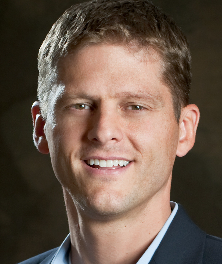This posting is one in an on-going Fox and Hounds series by Mr. Bernick with job search experts, on finding a job in a time of job scarcity.
The Abbe Sieyes was a French churchman and political theorist, who in the late 1780s was part of the push for reform of the Ancien Regime, and who became a prominent member of the new French government. Then, like so many early reformers he was driven from government by the radicals and almost consumed in the violence that ensued. Years later, when asked his accomplishment during the Revolutionary period, he explained, “I survived”.
Surviving during a time of economic downtown can be a legitimate accomplishment. But can we also make progress in job search, or even on a career/new career?
NextJob is an outplacement company based in Oregon, with an active presence in California. The company is retained by employers to help laid off workers land their next jobs. NextJob’s re-employment service includes an online job search training program, one-on-one job coaching and a virtual job club. John Courtney is the president of NextJob. He is also the President of the American Institute for Full Employment, a nonprofit think tank that consults with state agencies on best reemployment practices in the public sector.
Even in these economic times, Mr. Courtney encourages the job seeker to start, Step One, by identifying his or her passion. Though the job passion must be evaluated in terms of one’s realistic talents, skills and personality, it is the job passion that is the starting point.
Step Two is to draw up a list of 50 or more employers who fit the job seeker’s passion, personality, skills. Mr. Courtney explains, “Once you’ve added these things together, you are ahead of the game – you will only seek employers who truly fit you and that will show. Self aware job seekers who have already screened themselves for a job, add credibility to an interview and often suggest to a hiring manager that the job seeker will be a self starter and proactive.”
Step Three is where the real work begins. It’s not enough to only submit resumes on-line or send e-mails or even write letters. Where appropriate, pursue employers directly, one at a time. To make the most of every phone call or visit, make it informed by researching the company. Most importantly, if you can, use your network, a method that still accounts for the majority of hires in America.
Mr. Courtney explains: “If all of us are seven degrees of separation from Kevin Bacon, then we’re likely to be less than seven degrees from someone working for a targeted employer, in our market. Linked In and Facebook can be tremendous tools to help. Find someone in your network who works there or knows someone who works there. Ask them out for coffee or lunch. Learn how they landed their job in the company. Learn about what they love about their work and what the challenges are. At a minimum, you’ll learn about the job and the company. You might also learn about an opening and gain an introduction.”
Given the current economic times, Mr. Courtney is aware that our job seeker can undertake these job search actions, complete extensive research on a firm, even succeed in one or more informational interviews, and not be near securing a job.
“It’s definitely a numbers game. You have to keep getting out there and not get discouraged. It also helps to realize how much activity is going on behind the scenes. Still today, over half of the openings are not on the internet and there are an average of 50,000 hires in a city of 300,000 each year. Why? People retire, quit, move and change jobs – each one leaves an opening to be filled. This means that an employer not hiring when you call on them, may be hiring soon. It pays to go back to employers periodically. It increases your chances of hearing about a job before it’s posted and it also demonstrates your interest in them.”
“Get your foot in the door” has become an increasingly important part of job search in today’s economy. “Start in a related industry. Work a short term job. Volunteer. Stay active. If you’re ultimately interested in computer animation, and can’t get in the door with Pixar or Lucasfilm, start by working with one of their suppliers. Or apply for a job as a location assistant and let your interviewer know you want to grow with the company. Every step in a career can lead to other steps.”
As with other job search experts in our Fox and Hounds series, Mr. Courtney is quick to note that none of this is easy . Many of us are not comfortable in a sales role, especially for ourselves. Sales people push through it with optimism and rely on statistics and the motto that “Every ‘no’ is one step closer to a ‘yes’.” A good part of survival in tough economic times is this resilience, in the face of the far too many “no” responses.


